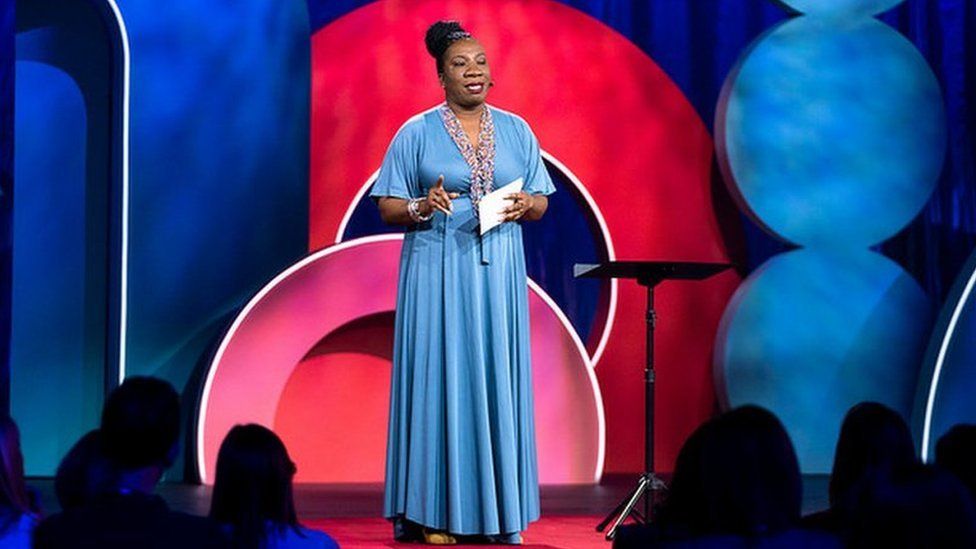MeToo founder Tarana Burke: Campaign now 'unrecognisable'
- Published

The founder of the MeToo movement has said that the campaign against sexual violence she began more than a decade ago has become "unrecognisable" to her.
Speaking at TEDWomen in Palm Springs, Tarana Burke said a media backlash had framed the movement as a witch hunt.
"Suddenly, a movement to centre survivors of sexual violence is being talked about as a vindictive plot against men," she said.
"Victims are heard and then vilified."
She was keen to get back to the original intention she had for MeToo when, in 2006, she wrote the words on a piece of paper as a way of starting an action plan to do something about the sexual violence she saw in her community.
The phrase became a globally used hashtag last year in the wake of allegations made against Hollywood producer Harvey Weinstein but Ms Burke says she feels the campaign is neglecting those it was set up to help.
"My vision for the Me Too movement is part of a collective vision to see a world free of sexual violence," she told delegates at the TED (Technology, Entertainment and Design) conference.
"This is a movement about the one in four girls and the one in six boys who are sexually abused every year, and who carry those wounds into adulthood," she says.
Ms Burke said in the wake of events like Brett Kavanaugh being appointed to the Supreme Court despite facing allegations of sexual misconduct - which he denied - US politicians seemed to be "pivoting away from the issue".
"This movement has been called a watershed moment but some days I wake up feeling that all the evidence points to the contrary," she said.
She ended her talk with a plea that victims not be forced to relive their traumas by speaking about them and she called for the fight against "power and privilege" to continue.
"We have to re-educate ourselves and our children to understand that power and privilege doesn't always have to destroy and take - it can be used to serve and build," she said.